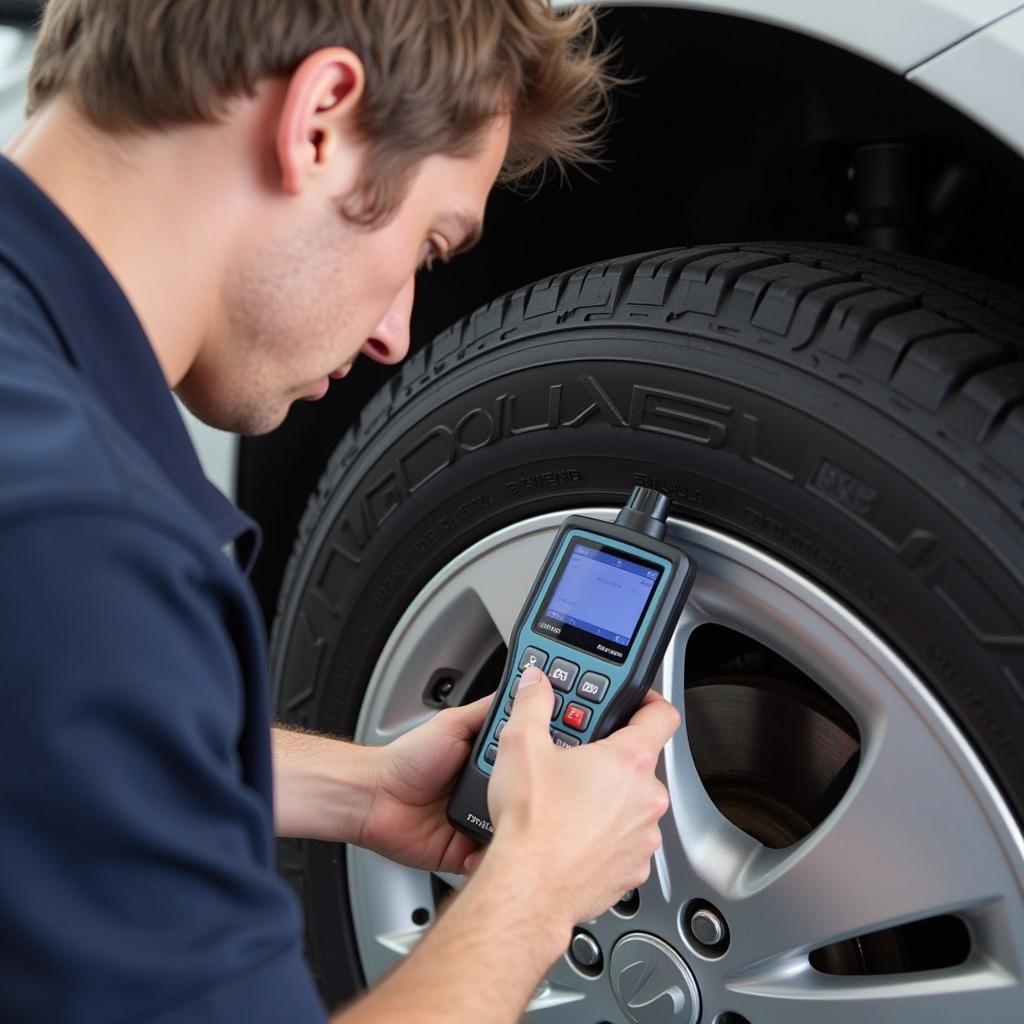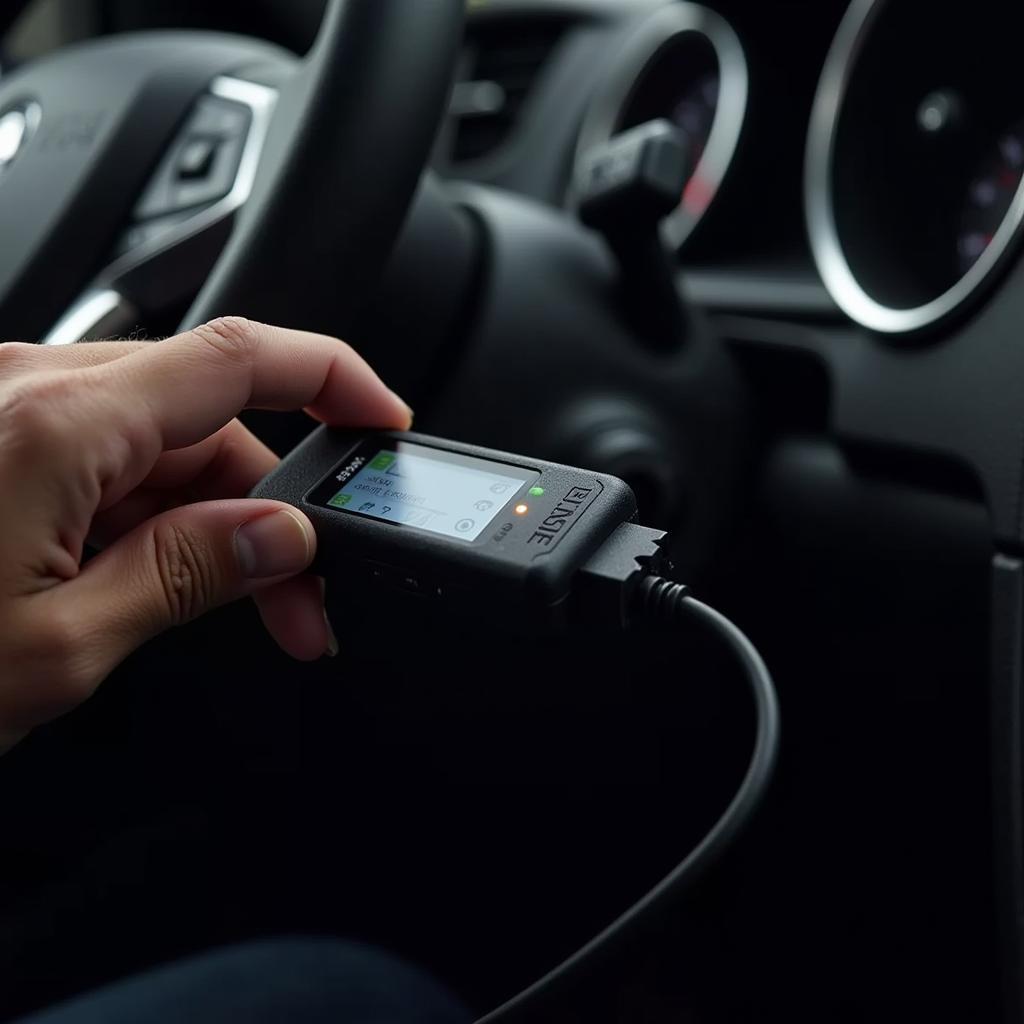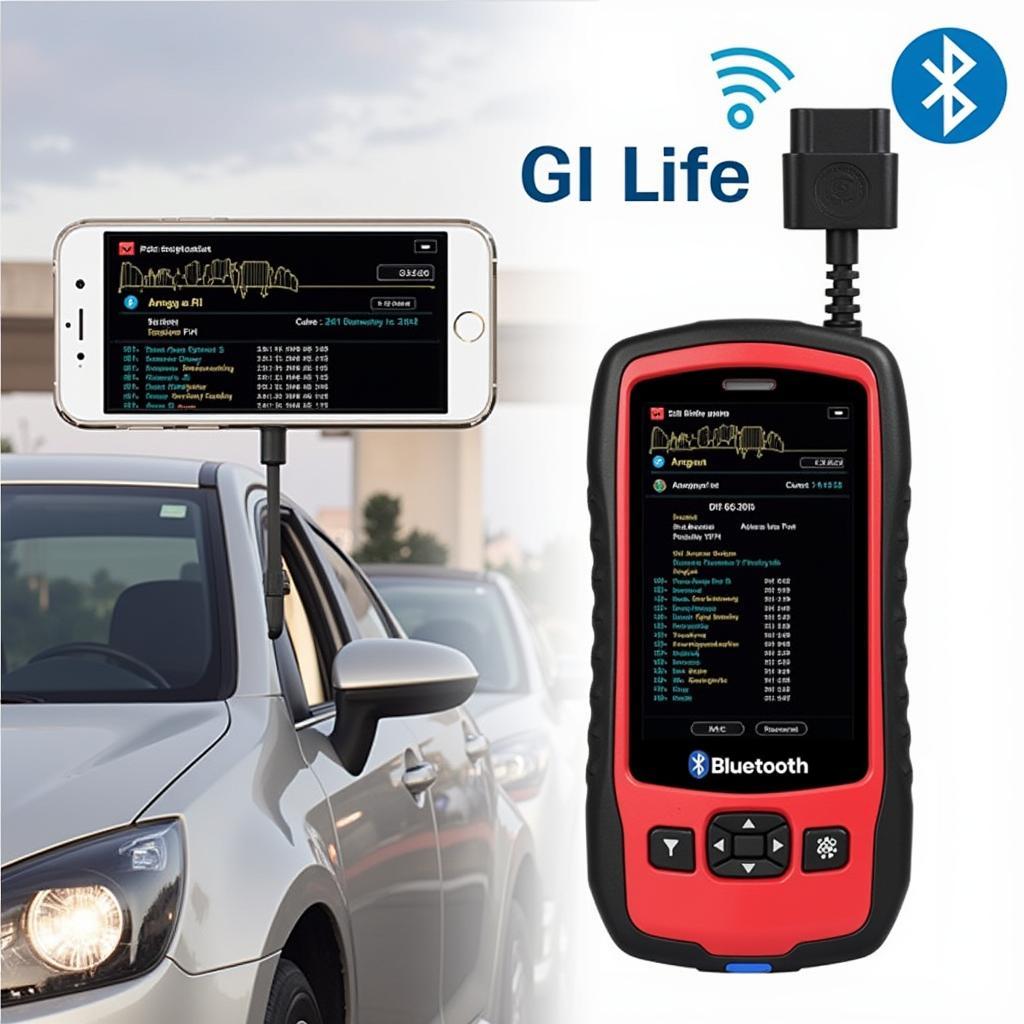The ability to effectively diagnose car problems is crucial for any car owner, mechanic, or DIY enthusiast. This is where Diagnostic Tools come into play. These tools, ranging from basic code readers to advanced scan tools, provide insights into your vehicle’s health and help pinpoint issues quickly and accurately.
The Importance of Automotive Diagnostic Tools
Gone are the days of relying solely on experience and intuition to diagnose car problems. Modern vehicles are complex machines with sophisticated electronic systems. Diagnostic tools act as a bridge between these systems and the user, translating complex data into understandable information. This information is vital for:
- Accurate Problem Identification: Pinpointing the root cause of a problem, saving time and money on unnecessary repairs.
- Improved Repair Efficiency: Providing mechanics with the information they need to carry out targeted repairs efficiently.
- Enhanced Vehicle Performance: Allowing for regular monitoring of vehicle systems to identify potential issues before they escalate.
- Cost Savings: Avoiding unnecessary repairs by identifying minor issues early on.
- Increased Safety: Ensuring that all vehicle systems are functioning optimally, contributing to overall road safety.
Types of Diagnostic Tools
There are various diagnostic tools available, each catering to different needs and skill levels:
1. OBD-II Code Readers:
These are the most basic and affordable type of diagnostic tool. They plug into your vehicle’s OBD-II port and can read and clear basic diagnostic trouble codes (DTCs).
2. Advanced Scan Tools:
These tools offer a wider range of features compared to basic code readers. They can access and display live data from various vehicle systems, perform advanced diagnostics, and even program modules in some cases. GM diagnostic tools are an example of specialized scan tools designed for a particular make of vehicle.
3. DIY-Friendly Diagnostic Apps:
With the increasing use of smartphones, many diagnostic apps have emerged that connect to your vehicle wirelessly. While these apps may not offer the same depth of functionality as dedicated scan tools, they provide a convenient and affordable way for car owners to perform basic diagnostics.
4. Oscilloscopes and Multimeters:
These are more specialized tools used by experienced mechanics and technicians. They provide detailed electrical signal readings, which can be invaluable in diagnosing complex electrical issues.
Choosing the Right Diagnostic Tool
The best diagnostic tool for you depends on your needs and budget. Consider the following factors:
- Frequency of Use: For occasional use, a basic code reader or a DIY-friendly app might suffice. However, for professional use, an advanced scan tool is essential.
- Vehicle Compatibility: Ensure that the tool you choose is compatible with your vehicle’s make, model, and year.
- Features: Determine what features are important to you, such as live data streaming, bi-directional control, and module programming.
- Budget: Set a realistic budget and choose a tool that offers the best value for your money.
The Future of Automotive Diagnostic Tools
The automotive industry is continuously evolving, with technology playing an increasingly important role. Diagnostic tools are also evolving, becoming more sophisticated and user-friendly. We can expect to see:
- Increased Integration with Cloud Technology: Allowing for remote diagnostics, data sharing, and software updates.
- Advanced Data Analysis and Predictive Maintenance: Utilizing artificial intelligence (AI) and machine learning to predict potential problems before they occur.
- Augmented Reality (AR) and Virtual Reality (VR) Applications: Providing mechanics with interactive and immersive diagnostic experiences.
Quote from John Smith, Senior Automotive Engineer: “The future of car repair lies in harnessing the power of data. Diagnostic tools are becoming smarter, allowing us to move from reactive repairs to proactive maintenance.”
Conclusion
Diagnostic tools are no longer optional for car owners and mechanics alike. They are essential tools that provide valuable insights into your vehicle’s health, enabling accurate diagnostics, efficient repairs, and improved safety. As technology continues to advance, these tools will play an even more crucial role in the future of automotive repair and maintenance.
For expert advice on choosing the right diagnostic tool for your needs, contact CARW Workshop at +1 (641) 206-8880 or visit our office at 4 Villa Wy, Shoshoni, Wyoming, United States. We offer a wide range of diagnostic tools to meet the needs of car owners, mechanics, and enthusiasts.







2 Responses